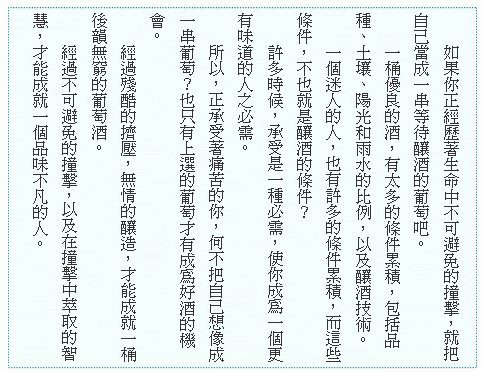ACCA paper 3.7, SFM, is FTC tutor Patrick Lynch's specialist subject
Overview Scott Goddard (the SFM examiner) has been studying Strategic Financial Management for over thirty five years, so he can write fairly innovative papers. When you open your exam paper, you may feel in the initial minutes after reading the paper that the challenge is too great. That's OK, that's all part of the process. Students have had trouble acclimatising to SFM papers for years. Take a few deep breathes and score one mark, then another and so on. Remember all you need is 50 per cent, so as the old saying goes "you can get 50 per cent wrong and still pass". Keep your nerve and keep going. If you can get the basics down on the paper you will pass.
Time management
Spend the first fifteen minutes reading the paper then select the questions you are going to attempt in Section B and complete them by 11.00 am. Then choose the more structured of the compulsory questions and complete it the time allowed i.e. 1.5 minutes per mark. Then attempt the final compulsory question.
Review topics for June 2005:
Section A: Contains two compulsory questions, normally a thirty and a forty marker. These compulsory questions will often include more than one core area of the syllabus.
* Interest Rate Risk and Currency Risk: please review both areas in detail. Remember that Goddard wrote a question called Autocrat in December 2002 which for the first time in the history of the paper combined both topics. Ensure you have a solid understanding of both interest rate and currency futures and options!
* Company Valuation: Be able to use and abuse the different valuation methods; Net Asset Valuation, Dividend Valuation Model, Price Earnings Ratio and of course the Present Value of Free Cash Flows (the new name for NPV). The valuation question is often within the context of the Merger and Acquisition environment. Another possibility is that you are asked to calculate an acquisition premium in a share for share merger.
* Foreign Direct Investment - Overseas NPV: Specific items you need to be aware of, the application of double tax agreements, remittances from subsidiaries, use of purchasing power parity theory to estimate future exchange rates and the overall structure of an overseas NPV.
* Investment Appraisal: please review the basic calculation of WACC and Risk Adjusted WACC and the use of deferred annuities and perpetuities within an NPV calculation. Knowledge of real options may be useful.
Section B: At least one of the questions is discursive.
* Dividend Policy
* Term Structure of Interest rate
* Portfolio Theory and CAPM – the calculation and interpretation of summary and alpha tables.
* International economics – I.M.F., Political Risk, Foreign Exchange Rate Systems, Balance of payments deficits. Control of foreign subsidiaries, Treasury Management.
Good Luck
Patrick Lynch




